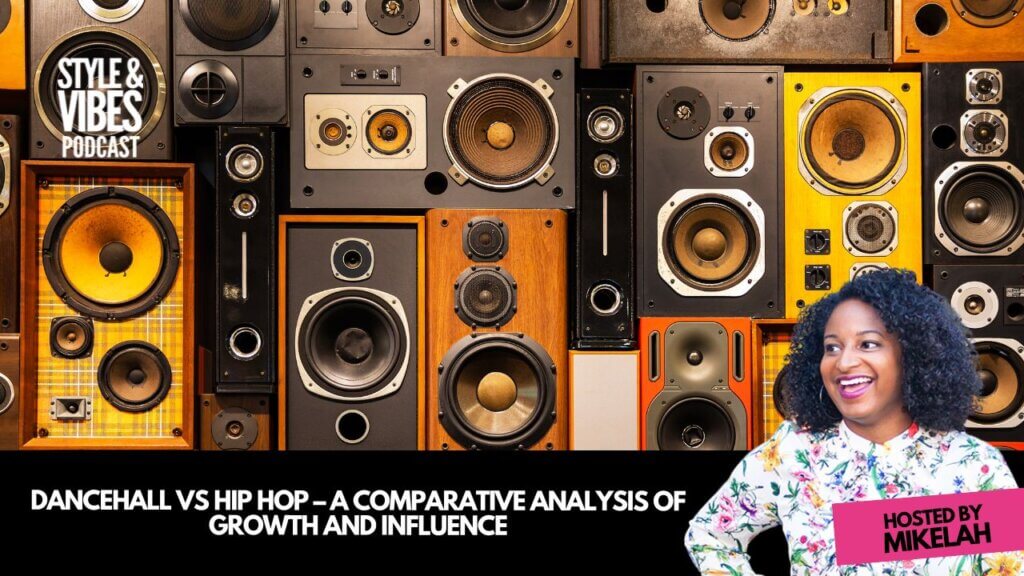
In the realm of music, two genres have consistently left a significant mark on modern culture – dancehall and hip hop. Despite their parallel journeys and similar cultural influences, the mainstream narrative often overlooks the profound impact these genres have made. In this podcast episode, we delve into the trials, triumphs, and cultural significance of dancehall and hip hop.
Our guests, Chris and Kerry, brought expert insights to the discussion, focusing on the often-underestimated influence of reggae and dancehall on hip hop. The exploration raised an intriguing question: Why hasn’t dancehall seen the same level of growth as hip hop? While some might argue about government support or lack thereof, we pointed out the contrasting growth patterns of these genres and how they could mutually benefit from more recognition and collaboration.
Further into the conversation, we dissected the unique sound clash culture prevalent in both dancehall and hip hop. The ability to clash and counteract songs has always been embedded in these genres, leading to significant cultural phenomena such as rap battles and music feuds. However, the similarities do not end there. We also touched upon the influence on Afrobeats, acknowledging its years-long journey to prominence and the critical role dancehall has played in shaping it.
A key point of our discussion was the need for increased collaboration in the music industry. From record labels and producers to artists themselves, we emphasized the importance of integrity and unity in pushing these genres forward. Furthermore, we highlighted the harsh realities faced by artists and the importance of staying connected to the culture, stressing that every beat and note matter in creating a successful song.
While exploring the influence of dancehall and hip hop, we also reflected on the importance of audience engagement. Successful artists like Shenseea and Spice have proven that nurturing a core audience is essential in today’s singles-driven market. As the music industry continues to evolve, artists must adapt and experiment with new ways to connect with their audience.
The conversation concluded with a call to action for dancehall. We agreed that the genre could benefit from more structured development and increased support from government and industry stakeholders. By harnessing the lessons learned from hip hop’s growth and addressing the unique challenges faced by dancehall, we believe the genre can reach new heights of recognition and financial success.
In conclusion, the cultural impact of dancehall and hip hop extends far beyond catchy beats and vibrant performances. These genres have shaped modern music and continue to influence new musical trends. By acknowledging their shared roots and unique growth trajectories, we can better appreciate their contribution to our cultural tapestry and look forward to their continued evolution.

Leave a Reply